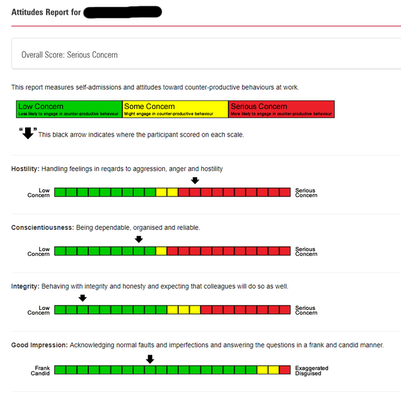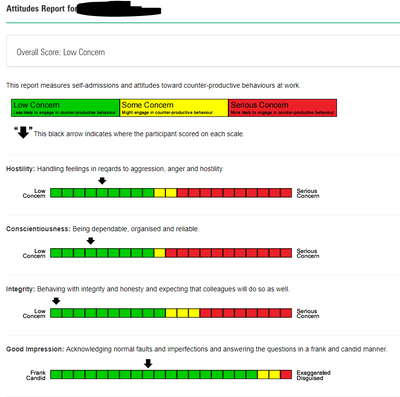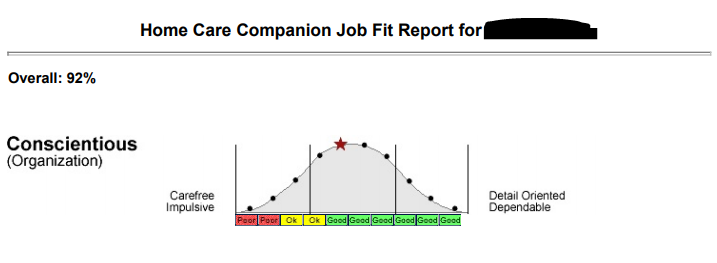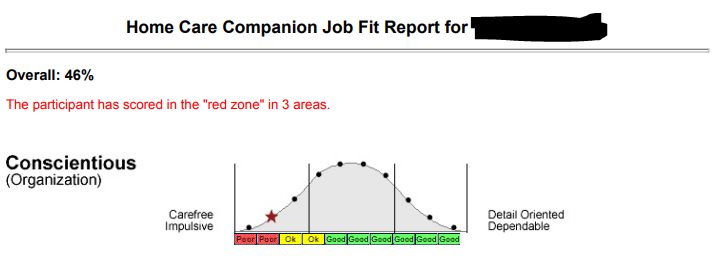Relevance of Behavioural Screening to the Royal Commission and the new Compliance Standards
26 Mar 2019
 Attitude report with Serious Concern in the area of Hostility
|
The traditional risk agenda in relation to candidates has maintained a focus on misconduct risk. This is seen in the mandatory police checks as part of pre-employment screening and more recently the calls to establish a registration process for frontline care and support roles.The Care Advantage Attitude assessment addresses critical misconduct risks, flagging candidates presenting with higher than desired risk profiles. Numerous clients see this as a key part of their workforce risk management agenda and a clear demonstration that they are, as part of a contemporary recruitment process, taking all reasonable steps to ensure against misconduct.
The new Compliance Standards (#8) require organisations to be able to demonstrate the governance frameworks used to mitigate risk and the Care Advantage Attitude screening provides this transparency.
Performance Risk
The emerging risk area related to Workforce (beyond misconduct risk) is that of Performance risk OR suitability to the sector. This is a key theme of the legislation and compliance requirements – a focus on the quality of care as well as safety (Standard #1 for example). This message is reinforced in the Quality and Safety Commission agenda, audits and rhetoric, as well as government publications and positioning. It has already appeared in the Royal Commission. As per comments by Ian Yates (Cota) “A lot of what we are seeing is safe care, but it is not meeting the needs of modern Australia”.
Performance risk is not about misconduct, it is about the casual neglect, lack of empathy, the lack of personal interaction that impacts clients and residents.
This is principally where performance risk is found, and this is where the Care Advantage screening facilitates the identification “fit for purpose” applicants through the Personality assessment and job fit scores.
1. Compliance satisfying the Consumer needs requirements of the Standards, especially when consumer input and feedback are sought as part of audits.
2. Competitiveness – The transparency being introduced into the sector, will have a direct impact on sustainability. The government is introducing open market forces in the sector to drive change
[NOTE:] General legal advice (Russell Kennedy Lawyers) to the sector states: “Be familiar with the recommendations made in key inquiries like the ‘Tune Review’ and whether you have adopted any recommendations targeted at how you deliver quality and safety in aged care”
It is worth noting that The Workforce Taskforce Report last year recommends, in Strategic Action 5, the use of Psychometric screening:








